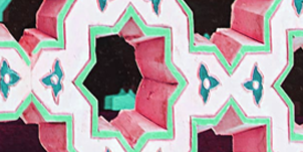NO MORE A SHADOW: MAKING SPACE FOR MUSLIM MOTHERS’ NARRATIVES
Posted on 29th March 2017
Muslims in Britain Research Network Day Seminar: Gender and Muslim Spaces: Community and Academic Perspectives
The University of Leeds and MBRN hosted this seminar day bringing together academics and practitioners from a wide variety of sectors to discuss gender within Muslim institutions and beyond.
Academic research presented on the day included the experiences of Anabel Inge’s exploration of Salafi Muslim women and her role as a researcher and the evolution of Tablighi men’s dress over generations by Riyaz Timol, as a prelude to several presentations by academics on the panels that followed.
Eye-opening accounts of developments and challenges were presented by Imam of Leed Madinah Mosque and their gender inclusive projects as well as the Bradford Muslim Women’s Council sharing an overview of the Women Led mosque project. In addition, the pertinent issue of Islamophobia was given a personal touch with MEND’s Dr Seima Iqbal sharing her journey into activism.
Muslim Mother’s and their Children’s Schooling was part of a panel on ‘Negotiating access in private and public spaces’ and my delivery: ‘Muslim Mothers no longer a shadow’ – highlighed the need for mother’s voices to be heard in the realm of education and the multiple sectors involved in a child’s upbringing
Photo creds: Saimma Dyer
Read the abstract here:
No more a shadow: making space for Muslim mothers’ narratives.
The subject of Muslim children’s education is frequently discussed in the public domain. Yet within and outside the Muslim community, current research and public spaces rarely include the voices of Muslim mothers – the key stake holders. Their shadows appear only within negative frameworks to sustain narratives that other them.
My research, taking a matricentric approach, involved focus groups and interviews with 53 Muslim mothers, from different ethnic groups, locations across England and education/professional levels. The findings show their breath of experiences; the passion to support their children’s education and some of the challenges they encounter – often invisible to society at large. The mothers’ narratives carve their identities, as they see them and define their relationship with education from their own paradigm.
Are Muslim institutions, networks and academics willing to make space to hear and value their contribution?
Share this post:




